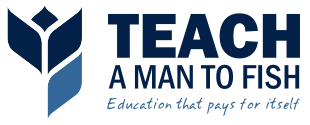Project name: School programs
Website
Countr(ies)
Headquartered in the UK
Operating in Honduras, India, and Uganda with a sister organization in Paraguay
Grade Level of Students Participating
Primary and Secondary school level
Number of Students Participating per Year
Over 70,000
Year Organization Began
2006
Relationship to the public education system
Teach a Man to Fish (TMtF) works with schools to set up school businesses that teach students business and entrepreneurial skills while generating much needed income for schools. TMtF works mostly in agricultural schools.
Teach a Man to Fish works with primary and secondary public schools, private schools, technical and vocational schools. The kind of schools that TMtF works with varies country to country.
TMtF identifies partners and schools through the School Enterprise Challenge. Schools who participate in the challenge and are of further interest to TMtF take part in TMtF school programs.
Organization’s Vision and Mission
The mission of Teach a Man to Fish is to enable schools to provide a relevant education, through enterprise, that empowers young people to succeed in work and in life.
Its vision is “a world free from poverty where all young people are able to reach their full potential in life.”
Brief Description of Program Activities
Teach A Man To Fish works with schools around the world to set up school businesses. These businesses are both educational and profitable. Students learn valuable business and entrepreneurship skills as well as work-readiness and life skills in a ‘real world’ context, and in doing so generate much-need extra income for their school.
Teach A Man To Fish works with local partner schools and NGO's by training school staff and students to start and run a successful, sustainable businesses.
Teach a Man to Fish’s program approach is based on two ideas:
- Learning for Earning: Schools that provide a practical and business education allow young people to lift themselves out of poverty.
- Financially Sustainable Institutions: Schools can be financially self-sufficient without charging fees or having to rely on the government if they pay for themselves through teaching entrepreneurship within real school-owned businesses that generate real profits.
Alongside traditional academic subjects, Teach a Man to Fish’s schools teach business and practical skills through running a profit-making business. These school enterprises not only help schools raise funds to cover costs but also serve as a platform for students to develop entrepreneurial and practical skills.
In addition to the above-mentioned school program, Teach a Man to Fish encourages and inspires innovation through:
- The School Enterprise Challenge, Teach a Man to Fish’s flagship global program which helps schools to plan and set up an educational business. Over 70,000 students have learned about entrepreneurship and gained real-life business skills since the competition began.
- The Pan-African Awards for Entrepreneurship in Education to reward the very best projects in Africa which are using enterprise and entrepreneurship to innovate in the field of education, to highlight their models and help them to scale.
Program Content: Intrapersonal Competencies
Creativity, independent learning, sense of responsibility, self esteem, self efficacy, flexibility, adaptability
Program Content: Interpersonal Competencies
Collaboration, cooperation, teamwork, communications
Program Content: Cognitive Competencies
Problem solving, strategic thinking, business planning, financial literacy, critical thinking, market research and analysis, risk analysis
Program Content: Attitudes and Values
Learning by doing, Financial sustainability
Program Content: Pedagogy/ Active Engagement of Students
The school enterprise model is used as a framework to provide experiential student-centered education. One cycle of the model runs for 1-2 years.
TMtF first trains students and teachers how to analyze their market, competitors and resources and create a business plan including a financial plan.
TMtF then support schools to implement their plan with robust management and reporting systems and on using the business as an educational tool.
Next, schools with operational school businesses take part in knowledge exchange visits for experience sharing, problem solving and inspiration.
Schools then are celebrated for their successes with awards.
Lastly, schools review and create plans on how to grow or diversify to develop a sustainable school business.
The curriculum is based on six educational pillars:
- Learning to Be
- Learning to Live Together
- Learning to Know
- Learning to Do
- Learning to Lead
- Learning to Earn
Additional Notes
The history of Teach A Man To Fish is closely connected with Fundación Paraguaya – their sister organization based in Paraguay. The common agenda of Teach A Man To Fish and Fundación Paraguaya is to combat poverty through high quality, sustainable education that enables young people to reach their full potential in life.
Fundación Paraguaya is a non-profit social enterprise, which develops innovative solutions to poverty and unemployment in Paraguay. It was the Fundación Paraguaya that established the first Financially Sustainable School in Latin America at their San Francisco High School in Paraguay.
Teach A Man To Fish is the international arm of the Fundación Paraguaya - set up to spread the School Business Model of entrepreneurial, high quality, relevant education to schools all over the world.
Prepared by
Seungah Lee
Reference List
1 All information provided on this table is based on the website and phone interview with Becky Sibson, Program Officer, on 6/30/16


